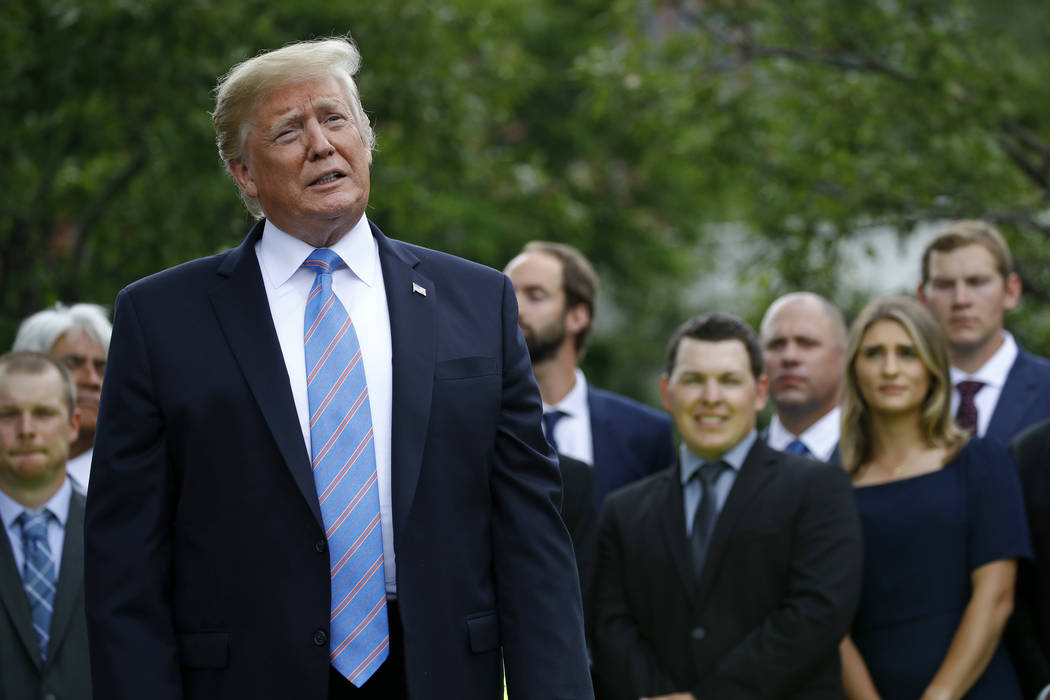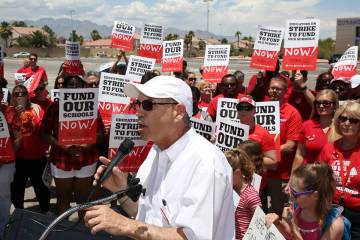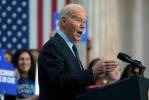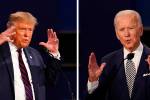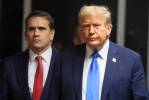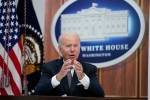EDITORIAL: Trump tariffs continue to hurt American consumers
Entering an election year, the Trump administration has much to tout on the economic front. Unemployment is at record lows, wages are rising and the stock market has soared. Meanwhile, the White House has managed to reduce taxes, cut federal red tape and maintain a growth rate above what many experts thought feasible.
And yet … President Donald Trump continues to undermine his successes by waging trade wars that have driven up prices for U.S. consumers without leading to significant gains in domestic employment or manufacturing output. Some economists estimate that the Trump tariffs have eroded GDP by as much as half a percentage point.
A pair of economic research papers released this week on the administration’s trade conflict with China reveal the negative effects of such policies.
The president’s economic advisers insist that China is bearing the burden of higher duties, but a collaboration of economists from Princeton, Columbia and the Federal Reserve found the opposite. “Using another year of data including significant escalations in the trade war,” they write, “we find that U.S. tariffs continue to be almost entirely borne by U.S. firms and consumers.”
A second study published by the National Bureau of Economic Research concluded that the Trump tariffs hindered U.S. export growth by driving up costs for American companies that rely on overseas supply chains. The cost was as much as $900 per worker, and the result was a decline in exports that amounted to “an ad valorem tariff on U.S. exports of almost 2 percent for the typical product.”
Eric Boehm of Reason magazine observes that governments typically try to avoid tariffs on “intermediate” goods that are used in the manufacture of other products because such duties can harm domestic companies. “But the heaviest tariffs imposed by the U.S. against Chinese imports have fallen on exactly that sector of the economy,” he notes, “in part because the Trump administration has tried to avoid having tariffs hit consumer goods.”
Unfortunately, that approach hasn’t spared American consumers.
Mr. Trump insists the short-term pain will result in long-term gain. He’s also well aware that it plays well with his base. But so far, the results have been lacking.
“While it may help the president with some people who like the bravado of it, the bottom line for a lot of people is very shaky,” Mo Elleithee of the Georgetown Institute of Politics and Public Service told The Wall Street Journal in August.
The risk for the president is that a trade war eventually triggers a downturn and he loses a promising election issue while befouling his economic legacy. Regardless of the politics, however, economic nationalism has a long record of failure and of hurting the very people it’s supposed to help. That should be reason enough to favor a more balanced approach to trade.



